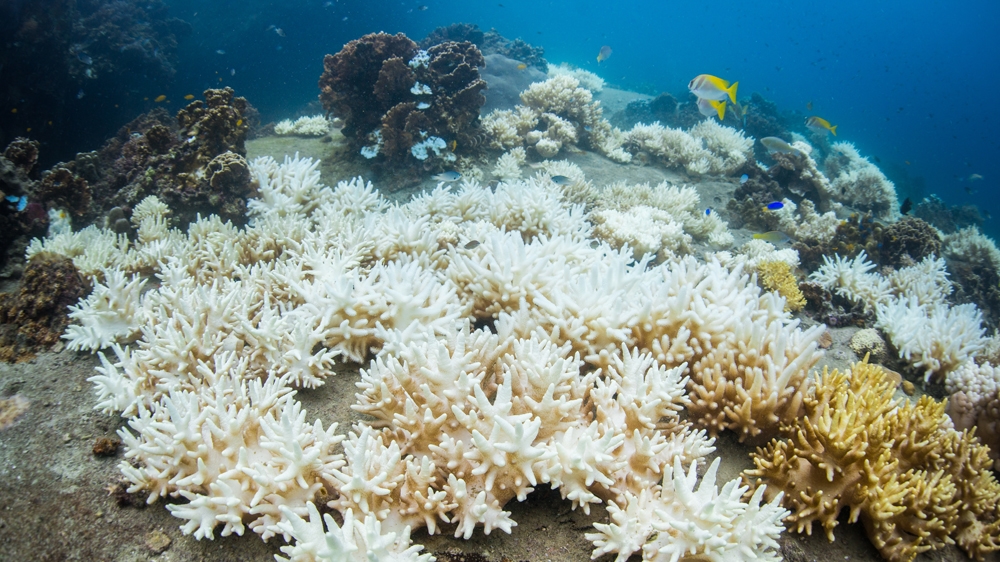KEY LARGO — The first global conference addressing coral reef restoration and intervention science took place last week in Florida featuring over 550 leading scientists and experts from nearly 40 countries.
This groundbreaking symposium tackled the challenges facing the planet’s coral reefs by sharing solutions, new research, experimental techniques, and promoting collaboration between global leaders in the field. Reef Futures was presented by the Coral Restoration Consortium, the U.S. National Oceanic and Atmospheric Administration (NOAA), and Australia’s Reef Restoration and Adaptation Program (RRAP), and hosted by Coral Restoration Foundation™ and Ocean Reef Club.
Highlights from the week included:
- Saving Coral Reefs will be XPRIZE’s new multi-million dollar competition. Planning to launch in 2019, XPRIZE is now calling for feedback from global leaders to construct a prize that will facilitate faster, bigger, and better coral reef restoration.
- The release of “A Research Review of Interventions to Increase the Persistence and Resilience of Coral Reefs” from the National Academy of Sciences, Engineering, and Medicine.
- Scientists from the Smithsonian Conservation Biology Institute, CARAMABI, Mote Marine Lab, and Florida Aquarium, with funding from Paul Allen Philanthropies, showed for the first time that cryopreserved coral sperm can be used to transfer genetic diversity from one region of the Caribbean to another, enabling assisted gene flow in endangered corals without transplanting adult colonies.
- The symposium adopted sponsor Iberostar Hotels & Resorts’ Wave of Change movement, eliminating single use plastics and unsustainable seafood while focusing on coastal health solutions. Together with Ocean Reef Club’s commitment to sustainability, there were no single-use plastics at the event. As a result, the symposium prevented the use over 30,000 pieces of plastic.
- Site visits to some of the world’s leading coral reef restoration programs, including Coral Restoration Foundation™, which manages the world’s largest Coral Tree™ Nursery and a three-day workshop at Mote Marine Lab.
- Workshops on using satellites and drones to bring coral reef monitoring into the 21st century.
- The opportunity for international experts to share information on active interventions addressing the historic outbreak of stony coral tissues loss disease affecting 22 species along the Florida Reef Tract, and the multifaceted response that includes a focus on strategic restoration.
- A day-long workshop for local and international teenagers to learn about coral restoration and share their stories.
- Conference sponsorships funded the attendance of 70 students and international participants who would have otherwise not been able to attend.
- A celebration of life for Dr. Ruth Gates, a visionary for coral reef science and intervention techniques.
Despite the scale of the response required to address the emergency facing the planet’s coral reefs, the atmosphere at Reef Futures 2018 was undeniably optimistic. Though we have lost 50 percent of the world’s coral reefs in the last 30 years, the attendees at this pioneering Symposium represent a highly-motivated community taking tangible action on the front line of the crisis.
“The challenge of saving the world’s coral reefs is huge. We know restoration and resiliency are part of the solution. We know the challenge is just as much about engineering as it is biology. At Reef Futures we were given an opportunity to share local successes and turn them into global solutions.” noted Tom Moore, Coral Restoration Lead at NOAA’s Restoration Center and Co-Chair of the Coral Restoration Consortium.
“Reef Futures took place right next to Key Largo’s famous Carysfort Reef – an iconic example of a reef in crisis. But, Coral Restoration Foundation™ is demonstrating that Carysfort Reef could soon become an iconic example of a reef restored, thanks to significant commitments from organizations like Ocean Reef Club and NOAA. With continued collaborations like this, and ongoing support, Reef Futures has revealed that we now have the opportunity to use these kinds of examples to change the game for coral reefs around the world.” said Scott Winters, CEO of the Coral Restoration Foundation™ and Co-Chair of the Coral Restoration Consortium.
While immediate and aggressive action on climate change is paramount for the long-term survival of reefs, repopulating degraded reefs with resilient, genetically diverse, and reproductively-viable corals is also essential. And that is exactly what this community is doing, every day. Now, they are coming together to scale up these vital efforts.
RRAP program leader David Mead said, “Even with strong action to reduce climate change, water temperatures are expected to continue rising and stabilize at levels very stressful for corals. Thanks to Reef Futures, we are working with experts from around the world in a ‘no-stone-unturned’ approach to designing new and innovative intervention techniques.”
“We are accountable to future generations for securing the very resources that have helped us and generations before us to thrive. By convening the leading experts from around the world we have helped to advance innovative coral restoration practices. We are all looking for solutions and many already exist. It is now in our hands to scale up restoration globally before it is too late,” noted Luis Solórzano, executive director for The Nature Conservancy in the Caribbean.
The Reef Futures 2018 Symposium was presented by NOAA and RRAP, hosted by the Coral Restoration Consortium, Coral Restoration Foundation™, and Ocean Reef Club, and sponsored by Iberostar Hotels & Resorts, The Henry Foundation, The Ocean Foundation, The Nature Conservancy, Coral Restoration Foundation™, Paul Allen Philanthropies, International Society for Reef Studies, Mote Marine Lab, SECORE International, Herbert W. Hoover Foundation, Ocean Reef Club, and others.
“I can think of no better way to end the International Year of the Reef than to gather and focus on proactive measures to conserve and restore coral reefs,” said Jennifer Koss, NOAA’s Coral Reef Conservation Program director.

